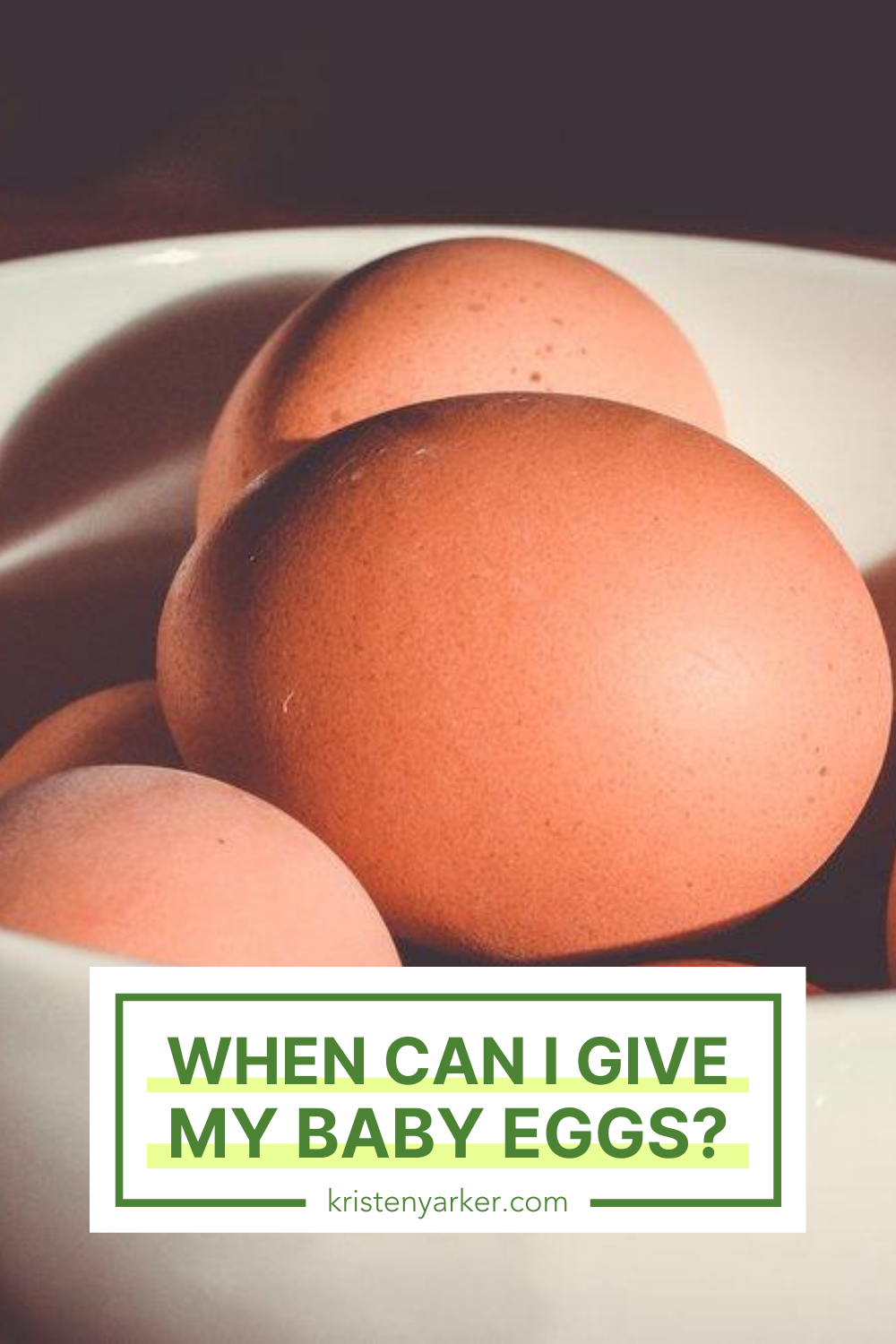When Can I Give My Baby Eggs?
/I'm often asked by parents "When can I give my baby eggs?". The old advice of waiting to introduce egg whites until babies are 1 year old has changed. But there are some important age considerations when preparing eggs for your baby. Here are all the do’s and don’ts when it comes to feeding eggs to your baby.
Eggs are an excellent first food. Yes, right from about 6 months onwards. The current advise for introducing solid foods is to offer iron-rich foods first. Then build up a repertoire of other foods, such as vegetables and fruit. Eggs are an iron-rich food. Eggs are also an excellent source of protein. So good is the protein in eggs that they are the standard that’s used to measure the quality of protein found in food.
You may be thinking “Wait, but aren’t eggs a high risk allergy food?” Yes, it’s true that eggs are a common food allergen. The latest research is suggesting that this is exactly why you should introduce them earlier rather than later. There is some evidence that waiting until 12 months or later to introduce higher allergen foods may increase the risk for an allergic reaction. Or, stated the other way around, introducing common food allergens as soon as you start introducing foods (at about 6 months) may help prevent food allergy. There isn’t sufficient evidence yet that introducing higher allergenic foods before about 6 months offers any protection. The good news is that this is an active area of research so perhaps in the next few years we’ll know more about how to prevent food allergies.
There are a few more details about eggs that you need to know to introduce them. These are steps to take to ensure food safety – to prevent food poisoning. Babies are more susceptible to food poisoning so it’s recommended to follow these guidelines.
When To Give Baby Eggs
Age
Guideline
Safe Examples
About 6-12 months
Serve only eggs with both hard yolks and whites
Hardboiled eggs, eggs in cooked foods (e.g. baking), eggs scrambled well-done, firm omelets, fried eggs over-hard, hard poached eggs.
1 – 5 years
Runny yolks are okay. Avoid raw eggs and eggs with runny whites.
All the examples from 6 – 12 months. And, over-easy fried eggs, sunny-side up fried eggs (with whites fully cooked), soft-boiled eggs (also known as eggs and soldiers, dippy eggs), eggs poached medium.
5 years and older
Eggs with runny yolks and runny whites as well as raw eggs, prepared safely, are okay.
Soft scrambled eggs, eggs poached soft, French-style omelets, sauces made with raw eggs e.g. home-made Caesar salad dressing, home-made mayonnaise.
Click here for more iron-rich first food ideas for baby.
Love this post?
Pin it!
Save this post for later or share it with your friends and family on Pinterest.
Check out more of Kristen’s pins here.





